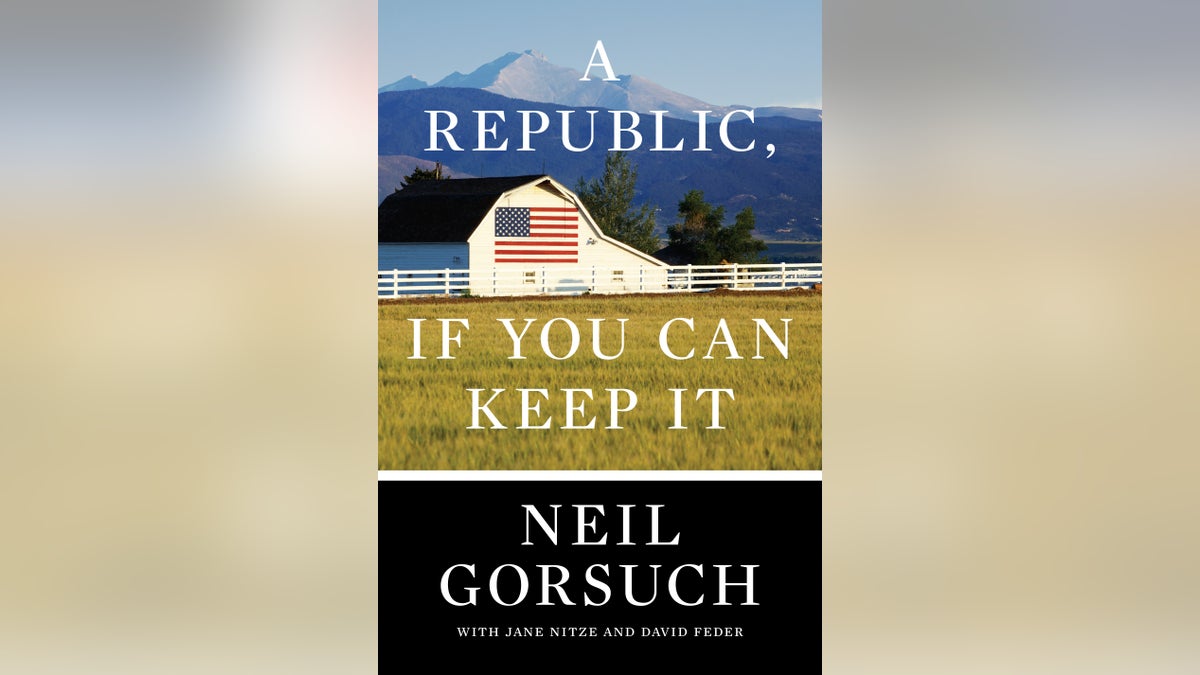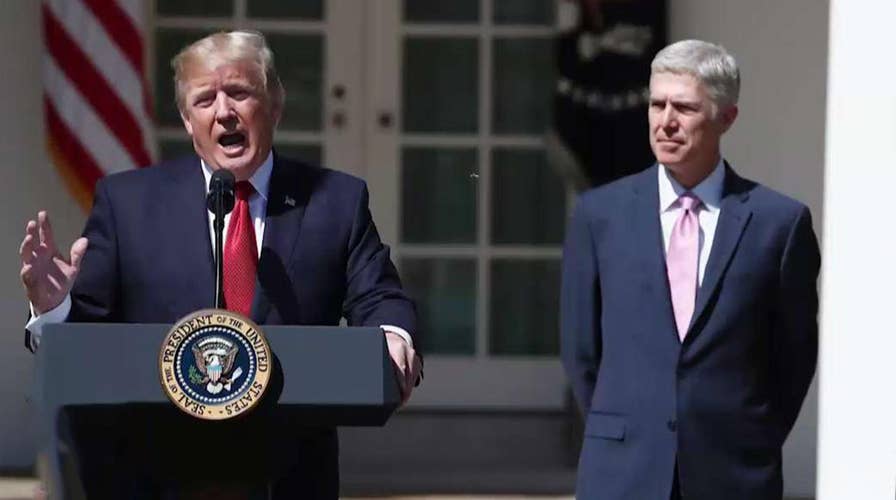Neil Gorsuch opens up on journey to Supreme Court in Fox News special
In his first televised interview as a Supreme Court justice, Neil Gorsuch sits down with Shannon Bream to discuss his journey to the nation's highest court.
When I was young, my dad handed me a copy of "Darkness at Noon," Arthur Koestler’s famous novel based on the Moscow show trials of the 1930s. He said the book contained all I needed to know about the world he and my mom had escaped when they fled to America from behind the Iron Curtain.
In it, the main character, Rubashov, a stand-in for the Old Bolsheviks executed in the purges, is arrested and imprisoned. The book largely comprises his reflections on his time as a party elite and his gradual renunciation of the credo “that the end justifies the means.” What had he once written in his diary, he now asks himself? “We have thrown overboard all conventions, our sole guiding principle is that of consequent logic; we are sailing without ethical ballast.”
Justice Neil Gorsuch’s new book, "A Republic, If You Can Keep It," isn’t about politics or any political philosophy. It’s a collection of the justice’s past writings and his effort to explain to lawyers and nonlawyers alike his views on our republic and its laws.
SUPREME COURT JUSTICE NEIL GORSUCH ON THE CONSTITUTION, LAW AND HIS FELLOW JUSTICES
As one of two former law clerks who helped the justice assemble the book, I read just about everything he has written over the years — not just the writings that made headlines during his confirmation, but also the opinions no one’s heard of and the speeches he gave once and probably never thought about again. Binders and binders of the stuff.
As I reviewed these materials one thing above all struck me. Although the subject matter of the pieces differ — some academic articles about interpretive methodologies, others commencement speeches to young lawyers, yet others tributes to former mentors — there is a consistent thread running through it all: a rejection of the consequentialist credo that has grown popular in academic and political circles that adopts once again the old line that the end justifies the means; that threatens to sacrifice the individual — his rights, interests, and ultimately life — in pursuit of a vision of a greater society.
More from Opinion
Gorsuch reminds us that our country was founded on a different principle: the conviction that the individual matters. The right to a trial by jury cannot be taken away even if doing so would advance some putatively greater collective good.
The same goes for the right to free speech, to confront witnesses against you, to be secure against unreasonable searches.
Beyond that, our Constitution gives the individual the right to control his government. It promises a republic of self-rule, where the people are supreme and have the right to shape their laws democratically and to have those laws applied neutrally by independent judges — even if the “enlightened” think government-by-bureaucrat would produce better outcomes.

(Crown Forum)
Many pundits have tried to divine what social agenda they believe the justice seeks to advance. Does he believe in expansive immigration? Climate change? Does he support criminal defendants against the state or is he in the tank for law enforcement? Is he an “anti-administrativist” (a word actually used by a critic)? And they’ll point to a handful of cases purporting to show one thing, only to scramble for a new theory when the next one comes out the opposite way.
CLICK HERE TO GET THE OPINION NEWSLETTER
These pundits miss the point. A fundamental commitment to the individual and our democratic order is the common thread running through Gorsuch’s philosophy.
Like other originalists and textualists, the justice believes that judges should interpret legal texts — whether the Constitution or statutes — based on the ordinary and public meaning of the words as understood at the time they were written.
Why? Because that’s the only way to ensure that the rights individuals secured in 1789 are not taken away tomorrow by unelected judges; that the ideals of our republic are not bargained away for any one policy outcome, no matter how pressing it seems and no matter how much acclaim it may earn a judge in the moment.
But there’s more to his respect for the individual than just interpretive methods. In his book, Gorsuch reminds us too that our democracy cannot survive without the personal habits that undergird a free people: Civility even when others’ views run against deeply held convictions. Courage to do what’s right even when it attracts the contempt of passing majorities. Public service even when it promises no riches. Honesty, integrity, kindness — as the justice tells it, the sorts of values taught in kindergarten. Without those habits, a democracy can become a mob, just as dangerous to unpopular individuals and groups as a despot.
As Benjamin Franklin once said: We have a republic, if you can keep it.
Those of us who know him, as a judge and a friend, also know he practices those values in his own life. As a judge, he rules by the law without caring whether doing so makes him popular. As a boss and friend, he exhibits the qualities his book urges individuals to pursue. He was the one who pushed me to apply for jobs I didn’t think I had a chance of getting; who offered to babysit my children — one and three at the time no less! — when a family member got sick; who rearrangedchambers meetings to accommodate my schedule when, as a clerk, I was nursing my newborn. And who, quite unexpectedly, put my and my co-clerk’s names on the cover of his book to ensure we got credit for helping him.
CLICK HERE TO GET THE FOX NEWS APP
Toward the end of "Darkness at Noon," Rubashov’s interrogator and former friend tells him that "there are only two conceptions of human ethics, and they are at opposite poles." One "declares the individual to be sacrosanct, and asserts that the rules of arithmetic are not to be applied to human units. The other starts from the basic principle that a collective aim justifies all means, and not only allows, but demands, that the individual should in every way be subordinated and sacrificed to the community."
No one who knows him or now reads his book can doubt where Justice Gorsuch stands.


